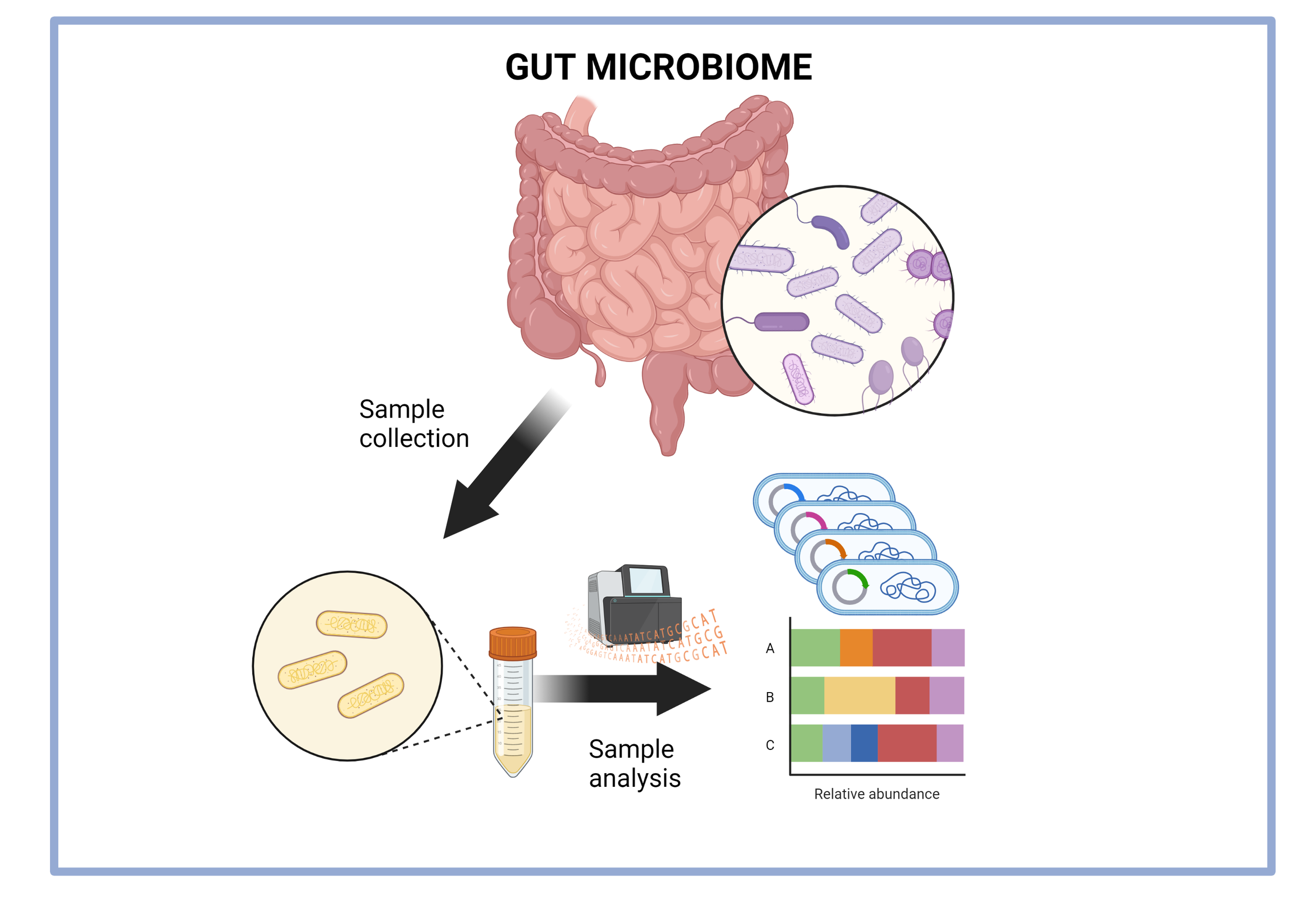The Gut Microbiome
The gut microbiome consists of trillions of microbes (e.g. bacteria, fungi, viruses) that inhabit the gastrointestinal (GI) tract of the host organism. In the healthy gut, the gut microbiome and host exist in a harmonious symbiotic relationship with a balanced host cell immune response. However, negative alterations in the gut microbiome, a term known as microbial dysbiosis, can give rise to a variety of disease states, including inflammatory bowel diseases (IBDs), such as colitis. The gut microbiome composition, consisting of microbes and microbe-derived metabolites, in IBD patients has been shown to differ when compared to healthy controls. In particular, there appears to be a major shifts in specific bacteria, from the phylum to species level. Our lab investigates several aspects of microbial dysbiosis during colitis in an attempt to identify key microbes that could be involved in disease promotion, or important in maintaining gut homeostasis.

